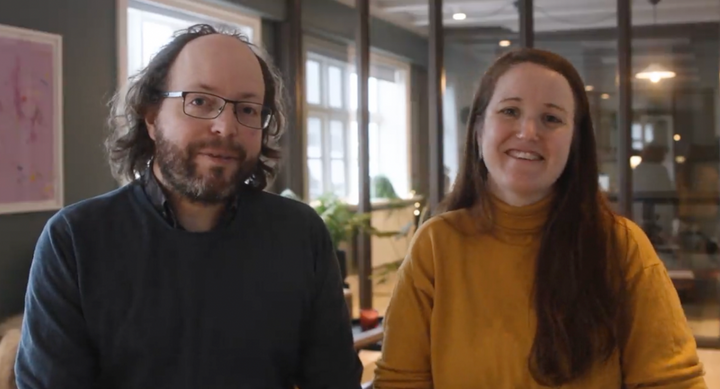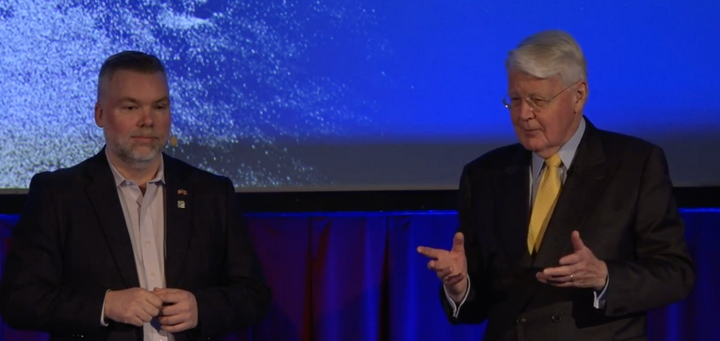Book Club Notes: Give and Take by Adam Grant
The second book club meetup was on July 26th, hosted by Watchbox. The weather was gorgeous, so we decided to take it outside.
July’s book was Give and Take by Adam Grant. From Amazon:
For generations, we have focused on the individual drivers of success: passion, hard work, talent, and luck. But today, success is increasingly dependent on how we interact with others. It turns out that at work, most people operate as either takers, matchers, or givers. Whereas takers strive to get as much as possible from others and matchers aim to trade evenly, givers are the rare breed of people who contribute to others without expecting anything in return.
In the book, Adam Grant argues that the most successful people are givers. He uses both anecdotal stories of individual givers, and academic research, to support his ideas.
We first heard about it through Krista Tippett’s podcast, On Being. She interviewed Adam Grant on the topics of the book. We highly recommend that podcast!
On to the notes: We organise our discussion around four topics – highlights, lowlights, takeaways, and applications. The notes mention a selection of those, that we discussed further.
Highlights
(things we liked about the book)
Inspirational: The book and it’s concepts are inspirational. Reading about people that care about others, and operate in such a way, AND succeed doing it, is inspiring.
Adam Rifkin: The story of the world’s best networker (according to Fortune) magazine), who operates a giver network. The only rule is Pay it Forward. The story about him is inspiring. An interesting highlight: There are two Adam Rifkins, and they’re friends!
Examples as a trojan horse for research: There’s a lot of data in the book, both research, and anecdotes. One thing that came up as a highlight, was when Adam used interesting stories to introduce research. This was also a slight lowlight as some of the examples felt too anecdota but were backed up by solid research.
George Mayer’s motto: George is a screenwriter for several comedies, most notably the Simpsons, and an example of a giver. He never takes credit, jumps on boring tasks, and enjoys helping other writers succeed. This has earned George a great reputation with screen writers. George’s motto for work is the following:
- Show up
- Work hard
- Be kind
- Take the high road
Givers are at the top AND the bottom: According to the book, consistent givers end up both at the top AND the bottom of the success ladder. The difference between them is that some factor in their own interests, and through that get to the top.
Lowlights
(things we didn’t like about the book)
It’s long: The book is long, has a lot of stories and research. In some cases we got the feeling “Yeah, got the point, let’s get on with it already.”
Where were the successful takers: We noticed a lack of anecdotes about successful takers. Which is understandable because the book is pitching the idea of givers.
Stretching the giver concept: At some points in the book, it feels like Adam is stretching the Giver concept, to cover cases where people are just genuinely good at their job. Examples include teachers that are good at their jobs, and salespeople that work hard at helping their customers reaching their goals.
Not a lot of actionables in how to create giver organisations.
Themes / Takeaways
(our main takeaways of the book)
Givers / Takers / Matchers: Unconditional giving makes the world better for everyone. Give without expecting anything in return. There are more win/win situations than you think.
Unlock value in your network by reconnecting with dormant ties: Reconnect with an old connection and offer her your help. These dormant weak ties are more likely to open up access to different networks, facilitating the discovery of original leads.
Be an otherish giver: Help with no strings attached but be careful not to overextend yourself along the way. Takers are prone to take advantage of givers unless the givers are conscious and smart about their giving.
Influence through prestige and weak communication: Instead of being dominating, be humble, speak less assertively, express plenty of doubt and rely on advice from others. Seeking advice gets other people committed to your cause.
Applications
(ideas of how we can apply concepts in work and life)
Start a reciprocity ring at your workplace: Get people together for 20 minutes to help each other make and fulfill requests.
The startup scene: you need a handful of people that are willing to be givers to build a good community. With hard work and consistency other people start to get pulled in.
Engage in job crafting: Innovate around your job description, creatively add and customize task and responsibility to match your personal values
Give to your team by jumping on the boring task.
—

A very big thank you to our friends at Watchbox who hosted the book club, and to Jói, Kristján, Haukur and Stefanía who helped write the notes.
You can join our book club Facebook group here. Our next book is Good Strategy, Bad Strategy by Richard Rumelt. Also, if you’re interested Give and Take, please use this link to buy it, and support Norðurskautið 😺




